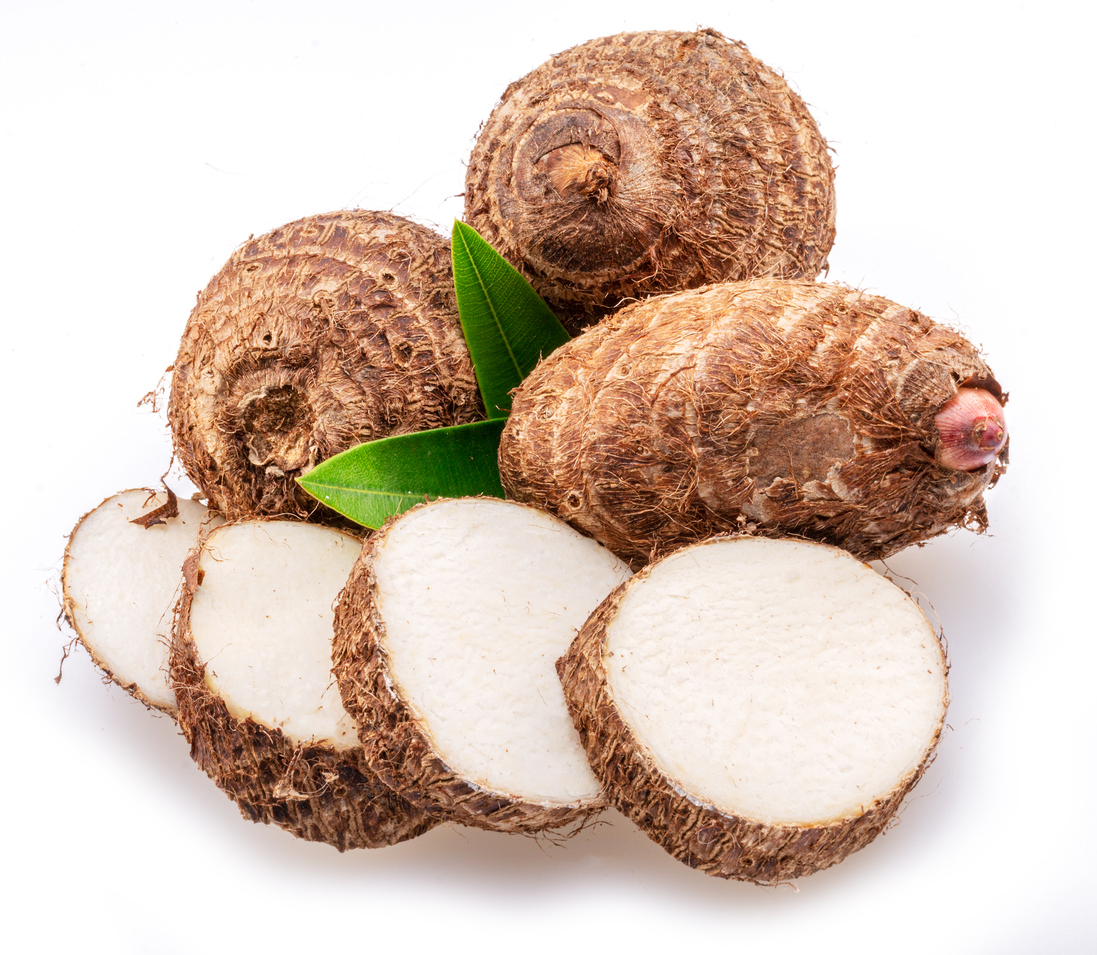Exploring the Benefits of Cocoyam: A Traditional Nigerian Superfood
Exploring the Benefits of Cocoyam: A Traditional Nigerian Superfood
Cocoyam is a traditional Nigerian superfood that is gaining more recognition in the health and wellness world. This ancient crop is packed with essential vitamins and minerals, providing numerous health benefits. Cocoyam is an excellent source of dietary fiber, vitamins A and C, and several minerals including iron, magnesium and calcium. It is also low in calories, making it a great choice for those looking to lose weight or maintain a healthy lifestyle. In addition to its nutritional value, cocoyam is also very versatile and can be used in a variety of dishes. From soups to salads and stews, this nutritious superfood can be used in many different recipes. So, explore the many benefits of cocoyam today and add this traditional Nigerian superfood to your diet!
What is cocoyam?
Cocoyam is a type of root vegetable that is cultivated in tropical climates, particularly in Nigeria. Cocoyam is a close relative of taro and yam, as it is part of the Dioscoreaceae family. There are several varieties of cocoyam, including white cocoyam, red cocoyam, black cocoyam and green cocoyam. While cocoyam is most commonly harvested and consumed in Nigeria, the root vegetable is also popular in West Africa, Central Africa and the Caribbean. White cocoyam is the most common variety grown in sub-Saharan Africa, making up 90% of cocoyam exports. The other varieties are cultivated primarily in West Africa. In many African languages, this plant is called “yam”, as it is related to the yam plant. However, cocoyam is not scientifically related to the yam.
Nutritional value of cocoyam
Like other root vegetables, cocoyam is a good source of dietary fiber and minerals such as iron, magnesium and calcium. It is also an excellent source of vitamins A and C, as well as several B vitamins. When compared to yams and taro, cocoyam provides the most vitamins A and C per 100 grams. It also has a higher iron content than yams and taro. Cocoyam is also an excellent source of protein and essential amino acids. This makes cocoyam an excellent choice for those looking to lower their risk of developing heart disease, diabetes and certain types of cancers.
Health benefits of cocoyam
As mentioned above, cocoyam is a rich source of vitamins A and C, as well as minerals such as iron, magnesium and calcium. Thus, it can also help protect against conditions related to these factors, including eye diseases, heart disease, diabetes and osteoporosis. Eye diseases – Cocoyam is especially beneficial for the eyes. The high vitamin A content found in cocoyam can reduce the risk of developing age-related macular degeneration (AMD), a common eye disease among older adults. Heart disease – The high iron content in cocoyam can help prevent heart disease by lowering blood cholesterol levels and reducing the risk of blood clots. Additionally, vitamin C found in cocoyam can help reduce blood pressure. Diabetes – The high vitamin C content in cocoyam can reduce the risk of developing diabetes by preventing blood sugar levels from rising too high after a meal. Osteoporosis – Vitamin A and calcium in cocoyam can help reduce the risk of developing osteoporosis, a common bone disease among seniors.
Different ways to cook/use cocoyam
Cocoyam can be boiled, steamed, mashed and fermented. It can also be eaten raw, although the nutritional content may be reduced when eaten in this way. Some people prefer to fry cocoyam, while others roast it in the oven or grill it on a stovetop grill pan. Cocoyam can be used in a variety of recipes, including soups, stews, salads and as a side dish. Below are a few ways to incorporate cocoyam into your daily diet. Soups – Cocoyam can be used in a wide variety of soups, including Caribbean soup and Asian soups. Stews – Cocoyam can be added to peanut stew and other stews for a hearty and nutritious meal. Salads – Cocoyam can be used in both hot and cold salads.
Recipes using cocoyam
Cocoyam and Coconut Soup – Coconut and cocoyam are a match made in heaven. This recipe combines the two into a hearty and delicious soup recipe. Cocoyam Stuffed with Peanuts – Cocoyam works well as a side dish in this peanut-stuffed recipe. Cocoyam and Egg Stuffed in Plantain Leaves – For a truly tropical dish, try this recipe that combines cocoyam and plantain leaves.
Tips for incorporating cocoyam into your diet
Like all root vegetables, cocoyam should be eaten in moderation. A serving size should be no more than 80 grams or 2 cups. While cocoyam does have health benefits, it is not a magic vegetable; it is not a cure-all. This superfood should be part of a healthy diet that includes a variety of fruits and vegetables. The nutritional value of cocoyam can be significantly reduced when cooked in large amounts of water. It is best to only use a small amount of water when cooking cocoyam. Keep in mind that cocoyam will lose more nutrition when steamed compared to boiling.
Potential side effects and cautions
Cocoyam is safe for most people to consume, but certain individuals may experience adverse effects. People with thyroid disorders, iron-deficiency anemia or iron overload disorder should avoid cocoyam as it has a high iron content. Additionally, people with allergies to root vegetables such as potatoes and yams should also avoid cocoyam. Like other root vegetables, cocoyam should be eaten in moderation as it contains high amounts of starch. Excessive amounts of starch can increase the risk of developing certain health conditions.
Where to buy cocoyam
Cocoyam can be purchased in the produce section of many grocery stores and online. While cocoyam is more common in tropical climates, the root vegetable can be found in the U.S. and other countries. When buying cocoyam, make sure it looks fresh and has no signs of mold. If you plan on eating the root raw, make sure to wash it thoroughly before consuming. Like other root vegetables, cocoyam is best stored in a cool, dark place such as a kitchen cabinet.
Conclusion
Cocoyam is a traditional Nigerian superfood that has many health benefits. Like other root vegetables, cocoyam is rich in dietary fiber and minerals such as iron, magnesium and calcium. It is also an excellent source of vitamins A and C, as well as protein. Cocoyam can be used in many different recipes, including soups, stews, salads and as a side dish. It can also be boiled, steamed or fried for a delicious and nutritious meal. For best results, only use a small amount of water when cooking cocoyam.








LEAVE A COMMENT
You must be logged in to post a comment.